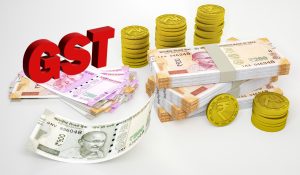 Hotel operators, especially those in the mid-market and upscale segments, are confronting a challenge that threatens to steer diners away to standalone restaurants: an uneven goods and services tax (GST) structure.
Hotel operators, especially those in the mid-market and upscale segments, are confronting a challenge that threatens to steer diners away to standalone restaurants: an uneven goods and services tax (GST) structure.
At the heart of the issue lies the disparity in GST levied on food services. Customers eating at standalone restaurants pay a uniform GST of 5%, while those dining at hotel restaurants are charged a steep 18% if the hotel’s room tariff exceeds ₹7,500, a rate that applies even to guests not staying at the hotel.
Since 2018, hoteliers have been voicing their concerns that this tax discrepancy is leading to a loss of restaurant customers, who prefer standalone restaurants for the tax benefits they offer. The industry’s stakeholders are pushing for a uniform GST rate of 5% for all dining establishments to level the playing field.
At a time when standalone restaurants are doing exceedingly well around the country, and the competition is already fierce, the hotel industry is questioning why a hotel room rate should have any significance with dining options.
Adding to the woes is the increasing tendency of hotel guests to order food from outside delivery services.
The GST council’s mechanism, which ties the dining GST to the hotel’s declared room tariff, puts hotel restaurants at a competitive disadvantage. For example, a meal costing ₹2,000 at a standalone restaurant incurs only ₹100 in GST, whereas the same meal at a hotel restaurant would attract ₹360 in taxes.
The situation is exacerbated for mid-market hotels where customers are particularly price-sensitive.
Hoteliers argue that the initial GST framework may have been predicated on the assumption that hotel clientele were less price-conscious, and would be able to absorb the higher cost.
“Hotels invest a lot of capital in creating food and beverage facilities…Charging a higher GST of 13% on the hotel restaurants is not fair…Due to this difference, the customer perceives hotel restaurants to be more expensive and seeks dining options outside of the hotel including takeaway. This situation requires a correction. GST rates have to be de- linked from hotel room tariffs,” said KB Kachru, vice president, Hotel Association of India, and chairman emeritus and principal advisor for South Asia, Radisson Hotel Group.
“If it is an economy hotel, then the rule works well because they can charge 5% GST since their room tariffs are under ₹75,00 usually. But in other formats, the customer hurts because hotel restaurants become less affordable. This is also true in the banqueting business where the amounts are so large,” said Ajay K. Bakaya, managing director at Sarovar Hotels.
Hospitality consultancy Hotelivate’s managing partner Achin Khanna said, “While hotel F&B outlets already face competition from the rapidly expanding independent restaurant industry, the additional 18% GST levied on hotel dining, compared to the standard 5%, further discourages guests from dining at the hotel, leading to lost sales opportunities.”
Samir MC of Fortune Park Hotels offers a nuanced view, acknowledging the complexity of India’s diverse tax system and suggesting that hotels must rise to the occasion by offering superior dining experiences that justify the higher tax bracket.
Nonetheless, the consensus is clear: the current tax model is unsustainable and in need of reform to ensure the vitality of hotel-based dining services.
Source: LiveMint
https://www.livemint.com/industry/hotels-push-for-gst-parity-with-standalone-restaurants-11701077018973.html


